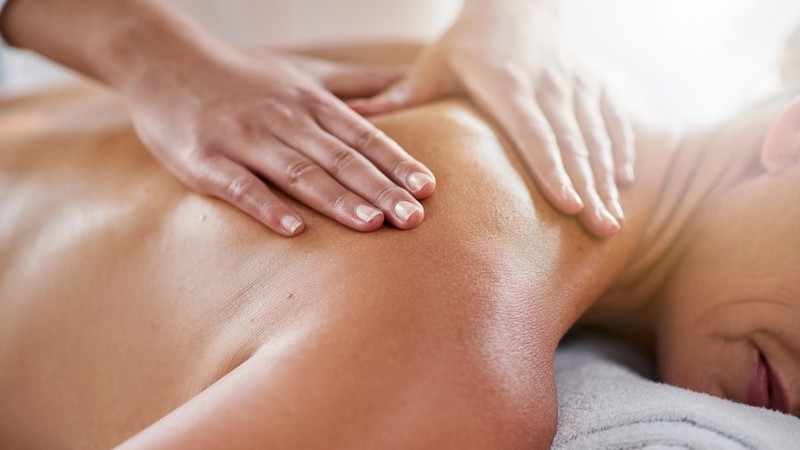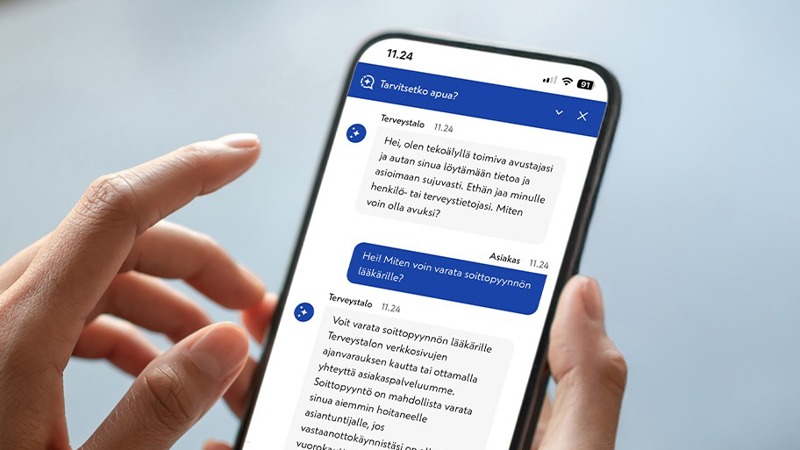Such misconceptions are still associated with massage
Marcus Frangén of Terveystalo Rela massage therapists explains how the understanding of the physiological effects of massage has changed and what misconceptions are persistently associated with massage.

1. Massage does not remove waste
Our bodies remove waste in many different ways - including through sweating and urine. A persistent misconception is that traditional massage also removes waste products from the body.
- Massage does increase local circulation, but it does not actually remove waste products. However, there is some evidence that lymphatic massage could stimulate fluid removal and reduce swelling. Lymphatic massage is a gentle and relaxing massage that is done by following the lymphatic system," explains Marcus Frangén of Rela massage therapists at Terveystalo.
2. The beneficial effects of massage are based on nervous system reactions
The beneficial effects of massage are based on nervous system reactions and do not require hard muscular manipulation to produce them.
- Many people associate pain with the fact that massage is effective. And then you persevere, not daring to tell the masseuse that it hurts. But current knowledge shows that the good effects of massage are based on a neural response and are achieved much more gently than by inflicting hard pain," says Frangén.
3. Too vigorous massage can even cause micro-damage
Too vigorous massage can even cause a small local inflammation of the muscle.
- Causing such micro-damage was once thought to be only good for you. It was believed that once the body had corrected the small local inflammation caused by massage, it would be more intact. In fact, all that was achieved was very sore muscles for the next few days.
4. There is a sweet pain that indicates a release of muscle tension
So massage should never hurt too much. But there is pain that also signals good things.
- We massage therapists call this sweet pain. It's a kind of light, good-feeling pain in the muscles when you massage them. Sweet pain signals that muscle tension is starting to relax," Frangén explains.
5. Massage should increasingly be used as a remedy for stress and insomnia
Massage not only relieves muscle tension, but its mind-calming effects are also better known.
- Massage affects the nerve endings in the skin that carry messages to the central nervous system. This is what is meant by the neurological effects of massage. The activity of the sympathetic nervous system is reduced and that of the parasympathetic nervous system is increased.
In practice, this means that the secretion of stress hormones is reduced and pleasure hormones are increased.
- The heart rate calms down, blood pressure decreases and the mind becomes quieter. Many people report that they also sleep well after a massage. Maybe you could make a habit of massaging your spouse's shoulders before bed," concludes Frangén.
Read more occupational health articles

What is metabolic age and why should you care about it?
A new laboratory study by Terveystalo reveals how your body is aging. Metabolic age makes biological aging visible.

Smooth assistance for your needs – our AI assistant is now at your service
You can now find Terveystalo’s AI assistant on our website — a quick and easy way to get answers based on the information available on our site. For now, the assistant is available only on the Finnish‑language section of our website, but you can chat with it in English.

How technology helps relieve mental stress: "When the load is high, the threshold must be low."
Mental health disorders have overtaken musculoskeletal disorders, which had long been the leading cause of sick leave. Work is changing, and the range of sick leave caused by mental health issues has also changed. We must be able to offer new solutions to this challenge.

Extensive data set of 200,000 samples: Nightingale study reveals link between illness risks and sick leave
Data from the Finnish Nightingale study, which is used in Terveystalo's occupational health services, reveals a clear link between lifestyle-related health risks and sick leave. The exceptionally extensive data set of over 200,000 customers shows that people with a low risk of illness had significantly fewer absences, while those in high-risk groups had more absences. The results highlight the importance of preventive healthcare in ensuring work ability and the competitiveness of companies.

Strong identification speeds up your service experience when calling us
Soon you can identify yourself easily and securely before your call is answered. Read below to see how the identification process works.

Terveystalo's digital services have been awarded the internationally recognized ISO27001 information security certification.
Terveystalo's information security practices, processes, and risk management are in line with international best practices.